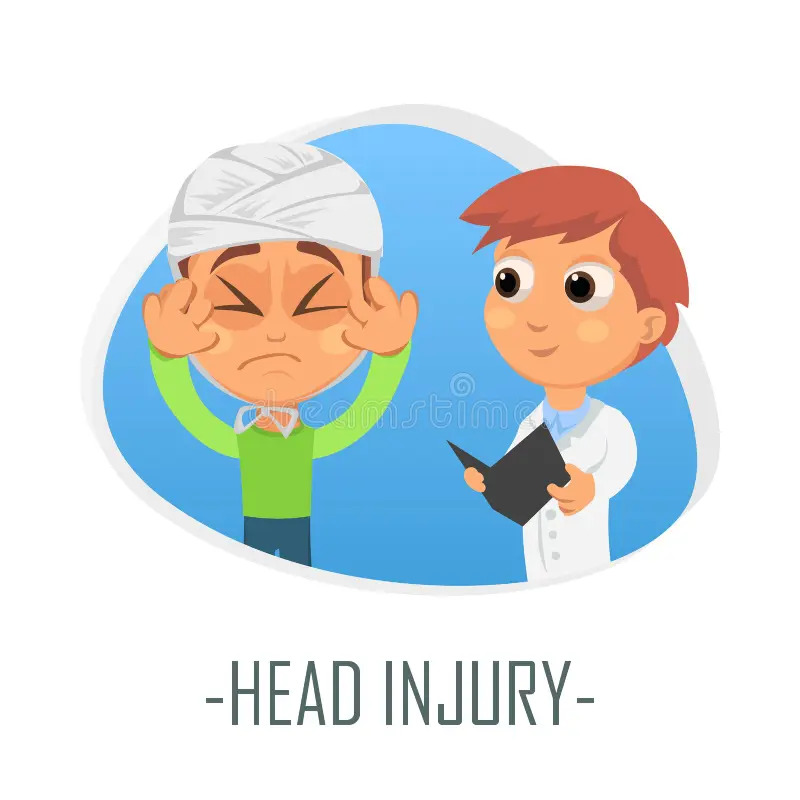Concussion Dream Meaning

Dreams have always been these mysterious little windows into our subconscious, haven’t they? They can be beautiful, bizarre, or sometimes downright unsettling. If you’ve ever woken up from a dream about concussions—or head injuries in general—you might find yourself sitting there in the dark, heart racing, wondering what on earth it could mean. Was it random? A sign? Or maybe your brain just decided to get overly dramatic while you were asleep?
Let’s talk about it. Because dreams like this aren’t necessarily literal—they’re symbolic. A concussion in a dream often points to feelings of being overwhelmed, knocked off balance, or hit by something unexpected in your waking life. Think about it: when someone gets a concussion in real life, it disrupts their clarity, focus, and sense of control. So if you're dreaming about one, it might be a reflection of how things feel in your day-to-day world right now.
Maybe you’ve been carrying too much on your plate lately—work stress, family responsibilities, personal goals—and somewhere deep down, your mind is screaming for a break. That "concussion" in your dream could symbolize all those pressures piling up until you feel like you've taken one too many hits. It’s almost as if your subconscious is waving a white flag, saying, “Hey, I need rest. I need space.”
Or perhaps it’s not about external pressures at all. Maybe it’s tied to fear—fear of losing control, fear of uncertainty, or even fear of forgetting who you are amidst chaos. Have you ever felt disoriented in life, like everything around you is spinning and you can’t quite grab hold of anything solid? That’s another layer a concussion dream might tap into. Your mind could be processing those moments of confusion or instability through the lens of injury because, well, isn’t that what trauma feels like sometimes? Like your foundation has been shaken?
And speaking of trauma, for anyone who has experienced a real concussion or some kind of physical or emotional blow in the past, these dreams might carry extra weight. Our brains don’t forget easily, and they use dreams as a way to process unresolved emotions. Even if you think you’ve moved on, your subconscious might still be working through the aftermath. These kinds of dreams aren’t meant to scare you—they’re actually part of healing. They’re nudging you to acknowledge what happened, give yourself permission to recover fully, and let go of any lingering tension.
But here’s the thing: interpreting dreams is deeply personal. There’s no one-size-fits-all answer. What resonates with one person might not click for another. So instead of jumping straight to conclusions, try reflecting on the details of your dream. How did it make you feel? Scared? Frustrated? Relieved, even? Emotions are key clues. Also, think about whether there’s anything happening in your life right now that mirrors the themes of disruption or imbalance in your dream. Dreams rarely come out of nowhere—they’re usually connected to something you’ve been ignoring or suppressing.
If you’re feeling stuck trying to decode your dream, don’t hesitate to write it down. Journaling can be incredibly helpful. Sometimes seeing your thoughts on paper makes patterns clearer. Or, if writing isn’t your thing, talk it out with someone you trust. Just verbalizing your experience can help untangle the web of confusion and bring peace of mind.
Of course, managing disturbing dreams isn’t only about understanding them—it’s also about taking care of yourself so they don’t keep coming back. Are you getting enough sleep? Eating well? Taking time to relax and recharge? All of these factors play a role in how vivid (and emotionally charged) your dreams can be. Grounding techniques, like focusing on your breath or practicing mindfulness before bed, can help calm your mind and reduce anxiety. And if you tend to watch intense movies or scroll through stressful news feeds late at night, consider swapping those habits for something gentler, like reading or listening to calming music.
Now, if these dreams become frequent or start affecting your daily life, it might be worth reaching out to a therapist. Chronic nightmares or recurring themes can sometimes point to deeper issues like anxiety, PTSD, or unresolved trauma. A professional can guide you through tools like cognitive-behavioral therapy (CBT) or dream analysis to help you work through whatever’s lingering beneath the surface.
At the end of the day, dreams about concussions—even though they can feel scary—are ultimately messages from your inner self. They’re asking you to pay attention, slow down, and take stock of where you are in life. Whether it’s a call to address burnout, confront fears, or simply show yourself more compassion, these dreams are invitations to grow and heal.
So the next time you wake up from a concussion dream, don’t panic. Take a moment to breathe, reflect, and remind yourself that your mind is just trying to guide you toward greater awareness and balance. You’re stronger than any metaphorical blow life throws your way, and with a little patience and care, you’ll navigate this chapter with grace.
Have you ever had a concussion dream? We’d love to hear about it—share your story in the comments below.



